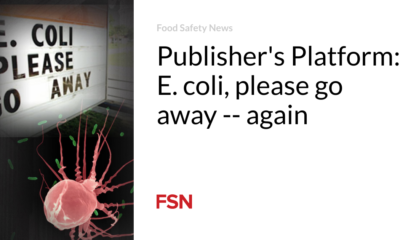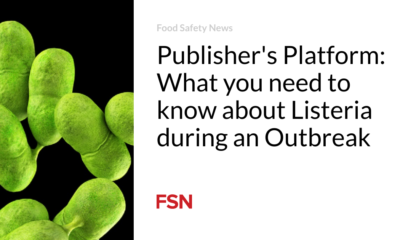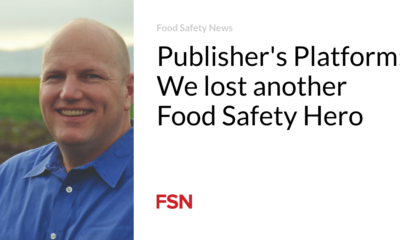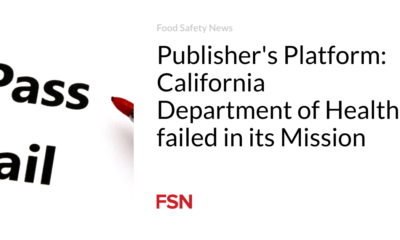Food
Publisher Platform: Will Importing an Ingredient Deemed to be an Adulteration Subject an Importer to Possible Criminal Liability?
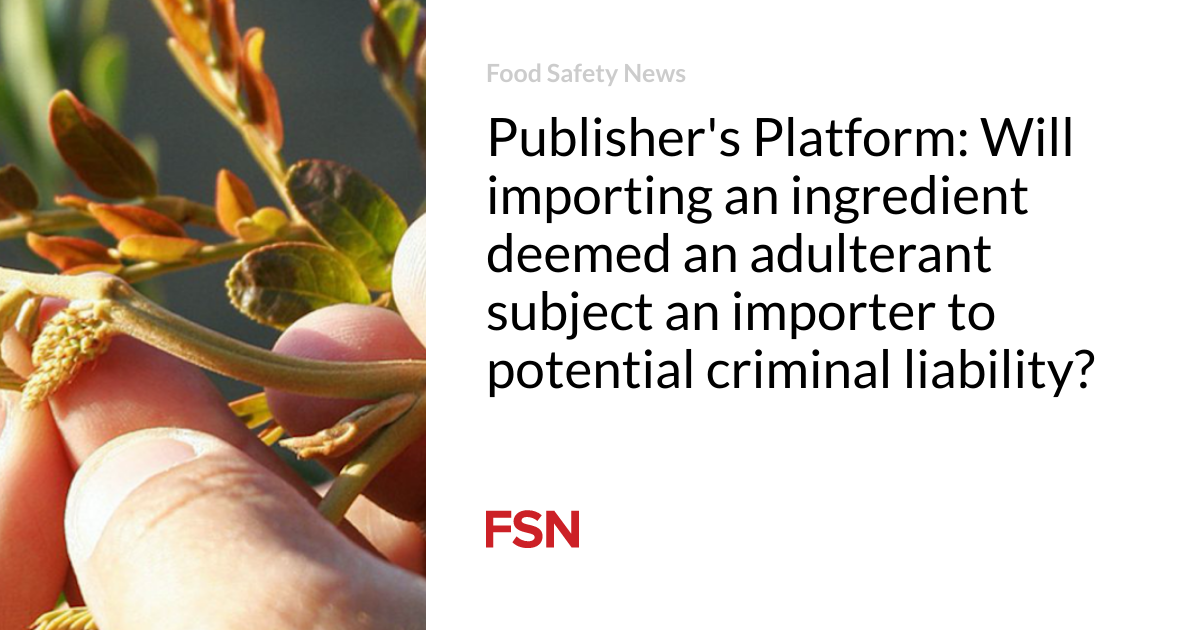
First of all, I want to thank the people who work at the FDA. Yes, I have often been a critic of the organization (or lack thereof), but the people at the FDA have always been heroes.
In December 2023, I wrote a letter to the FDA urging them to look closely at tara flour as a likely illegally imported adulterated food ingredient. Today, the U.S. Food and Drug Administration (FDA) published on its website its determination that tara flour in human food does not meet the General Recognized As Safe (or GRAS) standard and is an unapproved food additive. The FDA also published the underlying analysis. According to the FDA:
The serious side effects and liver damage associated with food products containing tara flour raise serious safety questions. Overall, the available data are currently insufficient to support the safety of tara flour for use as a food ingredient that will be consumed by the general public.
Due to the lack of adequate data and information in the scientific literature to support the safe use of tara flour in food, DFI cannot conclude that the addition of tara flour to food meets the regulatory criteria for classification as GRAS. As such, there is no consensus among qualified experts on the safety of using tara flour as a food ingredient. Therefore, based on the current status of data and information, tara flour does not meet the criterion based on experience based on general use in food (before 1958), or technical evidence of safety and the general recognition of safety required to be GRASS for use in food. Furthermore, there are no regulations for food additives that establish safe conditions for the use of tara flour. Based on an assessment of the available information, the use or intended use of tara flour in conventional human foods does not qualify for an exemption from the regulation as a food additive [Section 201(s)(1)-(6) of the FD&C Act]. Thus, when tara flour is added or intended for addition to conventional foods, it constitutes the use of an unapproved food additive and therefore becomes an unsafe food additive within the meaning of section 409(a) of the FD&C Act. Foods that are, contain, or contain an unsafe food additive, such as tara flour, are adulterated under 402(a)(2)(C)(i) of the FD&C Act. Introducing or supplying for introduction into interstate commerce adulterated food is a prohibited act under Section 301(a) of the FD&C Act.
As a result of this determination, the importer of tara flour faces potential civil and criminal liability. Under the FDCA, a person who commits a prohibited act “with intent to defraud or deceive” is guilty of a misdemeanor, punishable by imprisonment, substantial fines, or both. The most important factor is the intentional nature of the act.
A felony conviction under the FDCA does not require proof of fraudulent intent, knowledge, or intentional conduct. Instead, a person can be convicted if he held a position of responsibility or authority in a company that could have prevented the violation. Misdemeanor convictions are punishable by up to one year in prison, a fine of up to $250,000, or both.
However, the fines for violations are usually much higher than the statutory fines. Here are some examples of penalties imposed for criminal offenses:
Blue bell: $19,500,000 fine
With Agra: $11,200,000 fine
Chipotle: $25,000,000 fine
Wright County Egg (DeCoster): $7,000,000 fine and three months in prison
Odwalla: $1,500,000 fine

